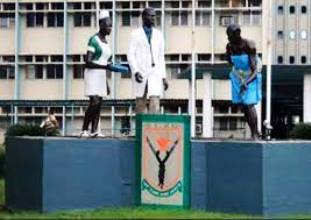The Lagos University Teaching Hospital (LUTH) has successfully completed another cycle of bone marrow transplants for patients with sickle cell disease (SCD), marking continued progress in the local treatment of the condition.
A Paediatric Haematologist at LUTH, Dr. Adeseye Akinsete disclosed this on Thursday in Lagos, in commemoration of World Sickle Cell Day, observed annually on June 19. The global event aims to raise awareness and deepen public understanding of SCD, along with the unique challenges faced by patients, families, and caregivers.
The 2025 theme, “Global Action, Local Impact: Empowering Communities for Effective Self-Advocacy,” highlights the importance of amplifying the voices of those directly or indirectly impacted by the disease.
Dr. Akinsete revealed that following LUTH’s first successful bone marrow transplant in August 2024, a second round had also been completed, with preparations underway for a third cycle scheduled for August 2025.
“This procedure marks a major breakthrough in Nigeria’s medical landscape,” he said. “It underscores the growing capacity of local healthcare institutions to provide advanced, potentially curative treatments for complex conditions like SCD.”
Nigeria bears the highest global burden of sickle cell disease, with an estimated 150,000 children born annually with the condition.
Akinsete, who leads the transplant team at LUTH, confirmed that all previously treated patients are alive, stable, and have functioning stem cell grafts.
“The process has significantly improved since inception and is now more efficient. Awareness of the programme is also growing, with our latest cycle including a patient from outside Lagos,” he added.
LUTH also runs a dedicated post-transplant clinic to monitor patients who underwent bone marrow transplants outside Nigeria.
“This service has been highly successful and caters to individuals from across the country. We also offer virtual consultations for patients who cannot physically access our facility,” he said.
Dr. Akinsete stressed that curative therapies offer a new lease of life for individuals battling sickle cell anaemia, moving them beyond symptomatic management to long-term wellness and recovery.


